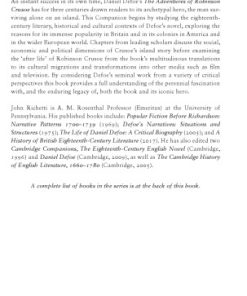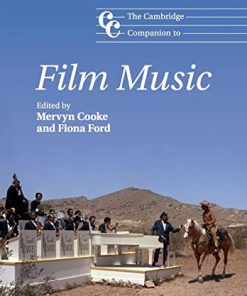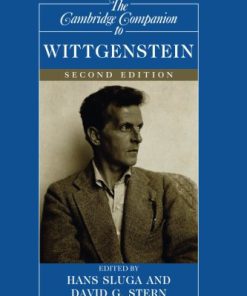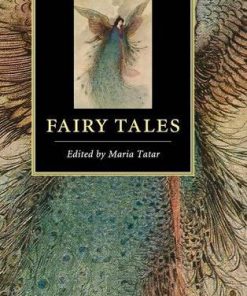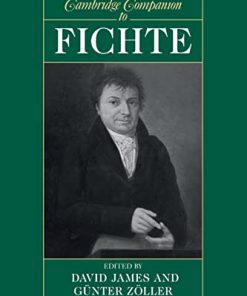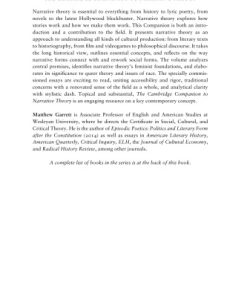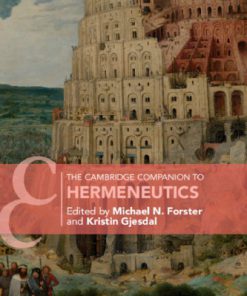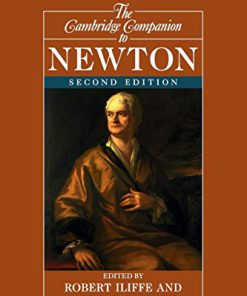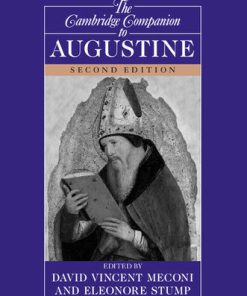The Cambridge companion to Chomsky 2nd edition by James Alasdair Mcgilvray 1316732960 9781316732960
$50.00 Original price was: $50.00.$25.00Current price is: $25.00.
The Cambridge companion to Chomsky 2nd edition by James Alasdair Mcgilvray – Ebook PDF Instant Download/DeliveryISBN: 1316732960, 9781316732960
Full download The Cambridge companion to Chomsky 2nd edition after payment.
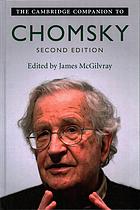
Product details:
ISBN-10 : 1316732960
ISBN-13 : 9781316732960
Author: James Alasdair Mcgilvray
This completely new edition of The Cambridge Companion to Chomsky surveys Chomsky’s contributions to the science of language, to socioeconomic-political analysis and criticism, and to the study of the human mind. The first section focuses on the aims of Chomsky’s recent ‘biological-minimalist’ turn in the science of language, and shows how Chomsky’s view of the nature of language and its introduction to the human species has recently developed. The second section focuses on Chomsky’s view of the mind and its parts – and how to study them. Finally, the third section examines some of Chomsky’s many contributions to socio-political history and critique. This new edition examines Chomsky’s views on a wide range of issues, from his views of the lexicon, language’s evolution, and the study of mind to the status of capitalism and the Palestine-Israel conflict. It will be essential reading for anyone with an interest in Chomsky’s ideas.
The Cambridge companion to Chomsky 2nd Table of contents:
Part I The Science of Language: Recent Change and Progress
1 The Locality of Transformational Movement: Progress and Prospects
1.1 Syntactic Structure
1.2 Underlying and Superficial Syntactic Structure
References
2 Is the Faculty of Language a “Perfect Solution” to the Interface Systems?
1 Introduction
2 The Starting Point of the Minimalist Program
3 Some Complexities of Pre-Minimalist Theories
4 The Notion “Perfection” in the Minimalist Program
5 The Pursuit of SMT and Its Consequences
6 The Possible Role of Evolution in “Perfection”
References
3 On Merge
1 The Background Issues
2 Unbounded Hierarchical Recursion
3 Whither Merge
4 Conclusion
References
4 A Feeling for the Phenotype
1 Origins: The Search for the Human Language Phenotype
2 What and Who? The Hierarchical vs. Linear Human Innovation
2.1 Linear Externalization and Animal Sensory Input-output Systems
2.2 Emergence of Language in the Human Lineage and Its Subsequent Variation
3 Where and When?
4 Conclusion
References
5 The Generative Word
1 Querying Words
1.1 Introduction
2 The Birth of the Syntactic Lexicon: Chomsky 1965, 1970
3 Lexicalism
4 The Government-Binding Model and Lexical Semantics
5 Word Formation (WF)
6 The Complete Word
7 Challenges: Constructivist and Root-based Approaches
7.1 Insertion Frames, the WF Perspective
7.2 Insertion Frames, the Constructivist Perspective
7.3 An A-categorial Lexicon and PF
8 A Brief Note on Grammatical Formatives
References
6 Third Factors in Language Design: Some Suggestions from Quantum Field Theory
1 Introduction
2 Binary States All the Way
2.1 Why Quantum Field Theory?
2.2 Binary Matrices in QFT and the X-bar Tree Generation
2.3 The X-bar Tree, Time-Reversal Symmetry and Its Breakdown
3 Dynamical Formation of Long-range Correlations: From Elementary Components to Ordered Patterns
3.1 Condensates, the Manifold of Concepts, and Logical Forms
4 Reference and Truth-functional Semantics
4.1 The Open System and Its Copy
4.2 Built-in Reference Systems
5 Wrap-up
Appendix
The Labeling Algorithm (LA)
References
Part II The Human Mind and Its Study
7 The Influence of Chomsky on the Neuroscience of Language
1 The Chomsky-Marr Challenge
2 The Pursuit of the (Very) Broad Questions
3 The Pursuit of the (Medium) Broad Questions: Textbook Organology
4 The Computational Neurobiology of Language
5 Revisiting Linking Hypotheses and Proper Granularity: Big Data versus Specific Data
References
8 Cognitive Science: What Should It Be?
1 Chomsky on a Naturalistic Cognitive Science
2 Natural Science and Language
3 Internalist Methodological Monism
3.1 Nativism
3.2 Concepts and Worlds
3.3 Creativity
3.4 Internalism: Challenges
4 Undermining Externalism
5 On Why So Many Cognitive Scientists Ignore Chomsky’s Recent Work
References
9 Semantic Internalism
1 Ambiguity as a Guide to Meanings
1.1 Strings vs. Structures
1.2 Homophony vs. Polysemy
1.3 Flexible Modifiers
2 Meanings, Concepts, and Theories
2.1 Leaving Room for Disagreement
2.2 Modulo Impurities
2.3 “I” before “E”
3 I-meanings and Human Concepts
3.1 Polysemy Redux
3.2 Assembly Instructions
References
10 Faculties and Modules: Chomsky on Cognitive Architecture
1 Introduction
2 Desiderata on Inquiry
3 Modules and Faculties
4 The Language Faculty Is Not So Special After All
References
11 Chomsky and Moral Philosophy
1 Two Discussions of Moral Philosophy
2 Some Clarifications
3 Moral Competence Is Generative
4 Moral Competence Is Modular
5 Moral Competence Has an Innate Basis
6 Williams, Wittgenstein, and Skepticism about Rules
7 Conclusion
References
Part III Chomsky on Politics and Economics
12 Critique and Hope: The Moral Basis of Chomsky’s Political Economy
1 Introduction: Moral Shock
2 Chomsky’s Moral Theory: Moral Universalism and Human Nature
3 Why Capitalism Is Immoral: Chomsky’s Critique
4 The Good Society: Chomsky’s Alternatives and His Moral Optimism
References
13 The Propaganda Model and Manufacturing Consent: U.S. Public Compliance and Resistance
1 Elite Contempt for the Public
2 Media Propaganda and U.S. Foreign Policy
3 Media Propaganda and Domestic Policy
4 Corporate Media, Consumerism, and Class Bias
5 Manufacturing Ignorance on Economic Issues
6 Manufacturing Consent for Domestic and Foreign Policy?
7 Broader Lessons
References
14 Chomsky Listens: Latin America and the Ethics of Solidarity
1 Chomsky Talks, Chomsky Listens
2 American Power and the New Left Critique
3 Turning the Tide
4 Managua 1986: Something New in the History of Imperialism
5 What Remains
References
15 Noam Chomsky and the Question of Palestine/Israel: Bearing Witness
1 The Framework
2 Maintaining a Myth
3 The Origins of the “Fateful Triangle”
4 The Ties That Bind
5 The Forward: After the Speech
6 Missing in Action: Evidence of Arab Peace Initiatives
7 Where to Begin? What Is to Be Done?
People also search for The Cambridge companion to Chomsky 2nd:
the cambridge companion to dostoevskii
the cambridge companion to
the cambridge companion to marx
the cambridge companion to quine
the cambridge companion to c. s. lewis
Tags: The Cambridge, companion, Chomsky, James Alasdair Mcgilvray, science of language
You may also like…
Arts - Music
The Cambridge Companion to Film Music Cambridge Companions to Music 1st Edition Mervyn Cooke
Politics & Philosophy - European & American Philosophy
Fiction
The Cambridge companion to fairy tales 1st Edition by Maria Tatar ISBN 1107634873 978-1107634879
Politics & Philosophy - European & American Philosophy
The Cambridge Companion to Fichte Cambridge Companions to Philosophy 1st Edition David James
Politics & Philosophy
Politics & Philosophy - Renaissance & Modern Philosophy
Politics & Philosophy - Ancient & Medieval Philosophy




